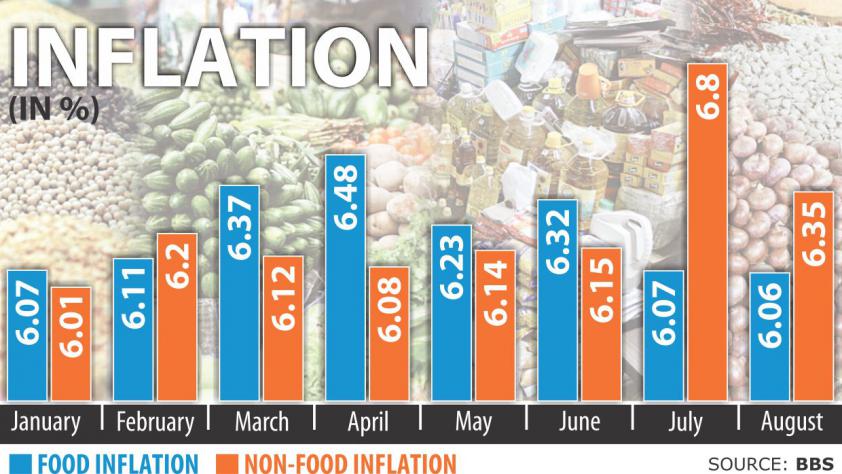Inflation slowed by 0.19 percentage points to 6.17 percent in August from the previous month mainly due to a fall in consumer demand after Eid-ul-Fitr.
Non-food inflation slowed by 0.45 percentage points to 6.35 percent in August from July, although it was gradually rising since May and rose 0.65 percentage points month-on-month to 6.8 percent in July.
Low rice prices in domestic markets and low edible oil and sugar prices in international markets have cooled down consumer prices, Planning Minister AHM Mustafa Kamal told reporters at his ministry while releasing the data yesterday.
Inflation has slowed largely because of a decline in non-food inflation, said Zahid Hussain, lead economist of the World Bank in Dhaka. “This is good news because non-food inflation had risen in July before falling in August.
“Weaker domestic demand following the Eid festival, stable international commodity prices and nominal exchange rate together with a cautious monetary policy stance are likely to have contributed to the softening of non-food inflation in August.”
However, in August, the price of various food items such as onions, green chillies and other vegetables rose due to monsoon rains.
Food inflation slowed 0.1 percentage point month-on-month to 6.06 percent in August, according to Bangladesh Bureau of Statistics.
The prices of rice mainly control the inflation index while edible oil and sugar also have a great impact, according to the minister.
The contribution of vegetables, such as green chilli, is negligible in inflation, he said, adding that if the prices of these commodities go up, they do not have much of an impact on the consumer price index.
The prices of coarse rice fell 12.33 percent year-on-year to Tk 30-34 a kilogram yesterday, according to data from Trading Corporation of Bangladesh.
The policies of the central bank also helped the inflation rate to be low, Kamal said.
In response to whether the recent hike in gas and electricity prices would result in a rise in inflation in future, he said gas is mainly consumed by the urban people, and it would have no effect in rural areas.
Source: The Daily Star










